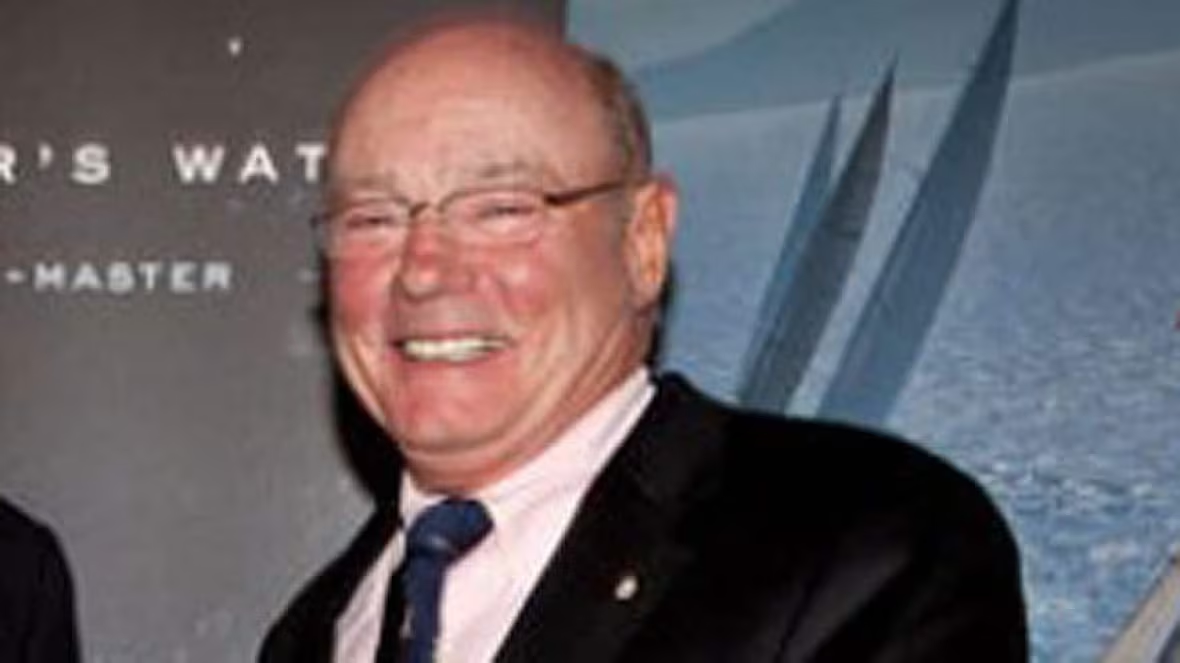Dennis Oland gets life in prison for killing father, Richard Oland
'Dennis Oland simply lost it, snapped or exploded,' judge says in setting parole requirement

Dennis Oland has been sentenced to life in prison with no chance of parole for 10 years in the 2011 murder of his father, businessman Richard Oland, in what the judge called "a family tragedy of Shakespearean proportion."
Oland showed no emotion Thursday as he was led out of the Saint John courtroom by sheriff's deputies, in contrast to his wails when jurors found him guilty in December of second-degree murder. He is appealing the verdict and will be requesting bail on Friday, pending appeal.
- Dennis Oland appeals murder conviction, seeks bail
- Dennis Oland wails uncontrollably after guilty verdict in father's murder

Court of Queen's Bench Justice John Walsh asked Oland whether he had anything to say before sentencing. Oland replied, "No sir, thank you," with a polite nod.
Walsh said he ultimately respected the jury's unanimous, non-binding recommendation that Oland serve the minimum 10 years before becoming eligible to apply for parole.

The jurors saw all of the evidence in the "complicated and convoluted" case and were aware of the "egregious brutality" of the killing, said Walsh.
Their recommended minimum was "not an apology for the conviction but rather a window into the basis of their verdict that reflects recognition of the long-standing dysfunctional family dynamic," he said.
Crown prosecutor Patrick Wilbur had recommended the judge consider parole ineligibility of between 12 and 15 years. The "brutal nature" of the murder "calls out" for more than the minimum 10 years, he said, as Oland listened attentively from the prisoner's box.
Defence lawyer Gary Miller had urged the judge follow the jury's unanimous recommendation and impose the minimum 10-year period of parole ineligibility.

Richard Oland, 69, was discovered face down in a pool of blood in his investment firm office on July 7, 2011. The multimillionaire had suffered 45 sharp and blunt force injuries to his head, neck and hands.
His only son was the last known person to see him alive during a meeting at his office the night before.
In reviewing the case, Walsh noted Oland would not express remorse to a parole officer for the killing because he maintains his innocence. That Oland didn't express remorse for a crime he said he didn't commit was neither a mitigating nor aggravating factor, the judge said.
"Dennis Oland simply lost it, snapped or exploded," the judge said, suggesting he must have been under "immense stress" at the time of the murder, given his "desperate financial straits."
The victim was "regrettably a very difficult man" who created "long-standing dysfunction in the family," he added.
2 victim impact statements submitted
After spending the morning listening to sentencing recommendations from the lawyers and hearing from some of the character references submitted in support of Oland, Walsh announced he needed time to "absorb" everything he had heard and adjourned the hearing for about two hours.

Walsh said the letters are intended to give him a sense of Oland as a person to assist him in sentencing, and that it was "extremely upsetting" some people used the letters as a Trojan horse" to express personal opinions.
"The only opinion that counts are the ladies and gentlemen that sat in that jury," he said. "I am now required by law to impose a sentence that verdict now demands. I'll say no more. I'm not pleased."
In passing sentence, Walsh noted Oland's family members declined to submit victim impact statements. Oland's extended family has stood by him from the beginning, maintaining his innocence.

A list of people who declined to give victim impact statements was submitted to the court, but the number of people or who they were was not read aloud.
The court did receive two victim impact statements — from John Ainsworth, who owns the building where the slaying occurred, and Preston Chiasson, who was one of the first people to discover the body.